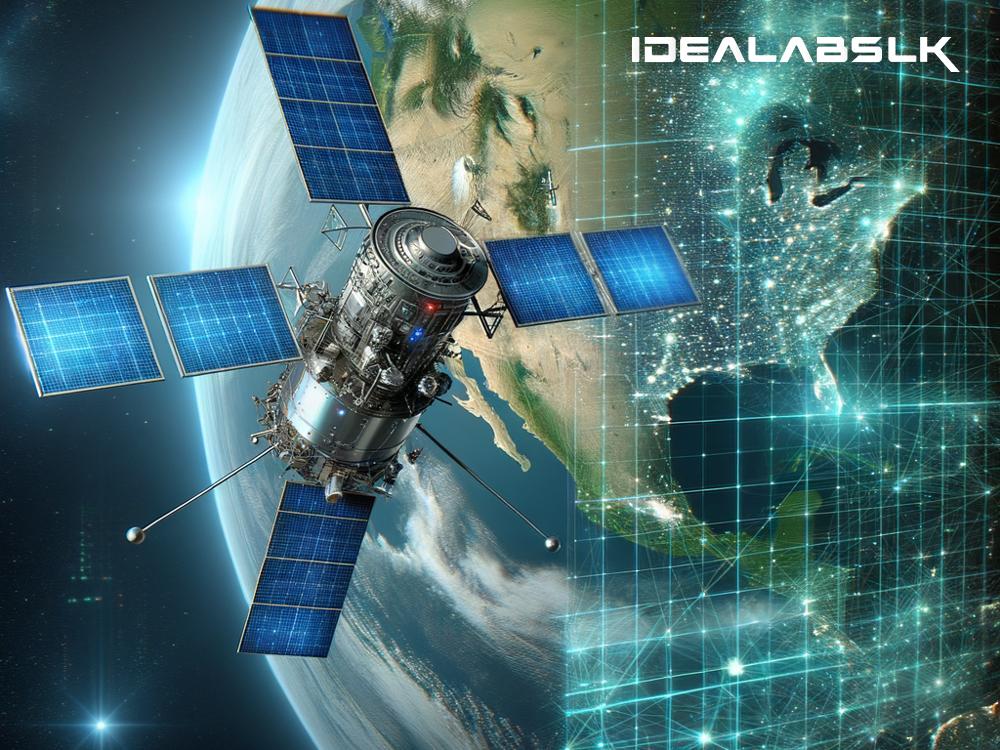Exploring the Role of Space-Based AI in Enhancing Space Exploration and Data Processing by 2024
Space, the final frontier, has always sparked curiosity and wonder in humanity. From the moment we first landed on the Moon to sending rovers to Mars, our quest for knowledge about the cosmos has been relentless. However, as we aim to delve deeper into space, the complexity of our missions and the vast amount of data we encounter grow exponentially. This is where Artificial Intelligence (AI), particularly Space-Based AI, enters the scene, promising to revolutionize space exploration and data processing by 2024.
What is Space-Based AI?
Imagine a computer system or robot that can think, learn, and make decisions on its own, but it's not on Earth—it's in space, aboard satellites, spacecraft, or even planetary rovers. This is Space-Based AI. Unlike traditional spacecraft that rely on commands sent from Earth, these AI-powered systems can analyze situations, adapt to changes, and make critical decisions in real-time without waiting for instructions from home base.
The Game Changer for Space Exploration
The introduction of AI in space exploration is a game-changer for several reasons. First, communication delays. Signals from Mars, for example, can take up to 22 minutes to reach Earth and another 22 minutes for a response to get back. With Space-Based AI, spacecraft can make immediate decisions, like navigating around unexpected obstacles or adjusting their course without waiting for help from Earth.
Second, Space-Based AI can process and analyze data on the spot. Space missions generate tremendous amounts of data, much of which is redundant or uninteresting, like empty shots of space. AI can sift through this data, identify what's relevant or unusual, and only send back the most interesting bits, saving time and bandwidth.
Enhancing Data Processing
The role of AI in processing space data cannot be overstated. By 2024, it's expected that Space-Based AI will have advanced algorithms capable of detecting patterns, anomalies, and features in data that humans might miss. This capability is crucial for discovering new phenomena, monitoring climate change, or even spotting distant planets.
Moreover, AI can speed up data processing significantly. What used to take scientists weeks or months to analyze can be done in hours or days. This efficiency boost means we can learn more about our universe faster than ever before.
Real-life Applications
So, how will Space-Based AI make a difference by 2024? Here are a couple of applications:
- Autonomous Rovers on Mars: With AI, Mars rovers can navigate the Martian terrain more effectively, choosing the safest or most scientifically valuable paths, analyzing soil and rock samples on the spot, and even conducting experiments without human intervention.
- Earth Observation Satellites: AI-equipped satellites can monitor environmental changes, track natural disasters in real-time, and manage agricultural data, providing invaluable insights for sustainability and disaster response efforts.
Challenges and Considerations
Embracing Space-Based AI is not without its challenges. Developing AI that can function reliably in the harsh conditions of space, ensuring the security of AI systems against possible cyber threats, and addressing ethical concerns about autonomous decision-making in space are all critical issues that need to be addressed.
The Road Ahead
As we edge closer to 2024, the synergy between AI and space exploration is poised to unlock new horizons. Whether it's enabling more ambitious exploration missions, enhancing our understanding of the universe, or making space more accessible and sustainable, Space-Based AI holds the promise of turning what was once science fiction into science fact.
In simple terms, Space-Based AI is like having a super-smart assistant in space that's ready to tackle problems on its own, making space missions safer, more efficient, and more exciting. As we continue to push the boundaries of what's possible, the sky is not the limit—it's just the beginning.

